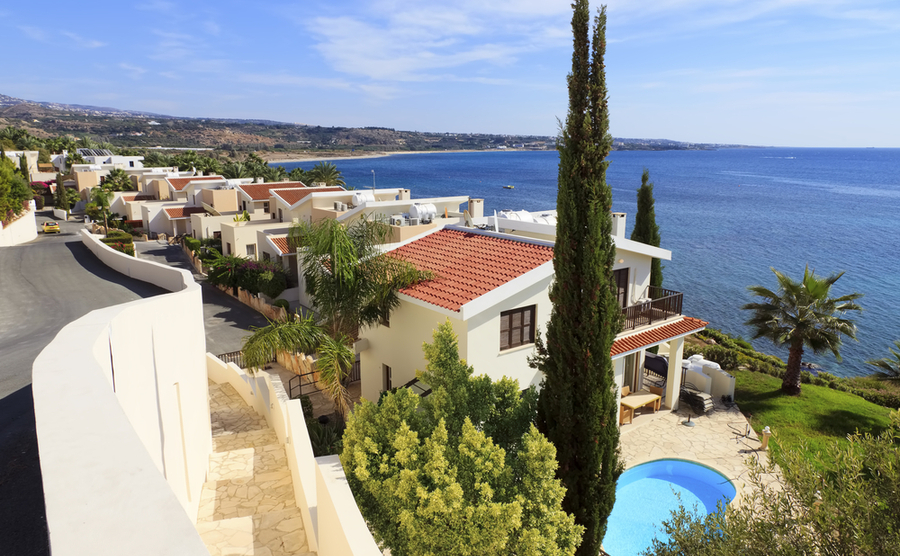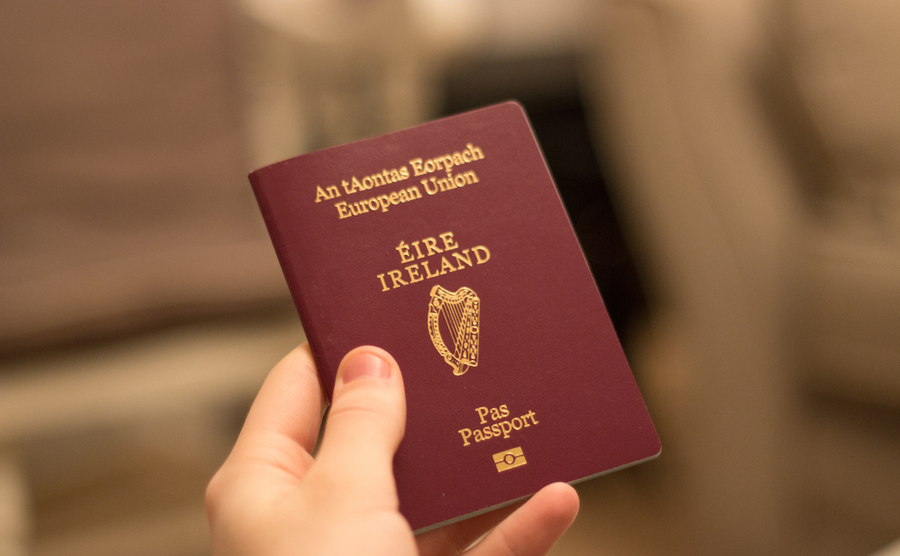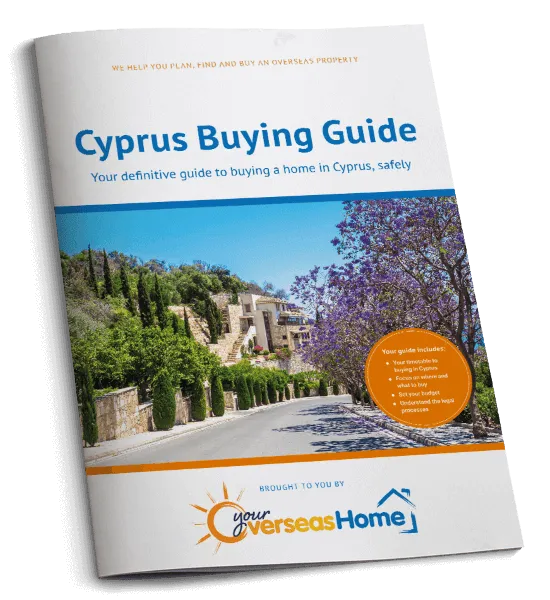With the easing of travel restrictions, we can now easily hop on a plane to visit and purchase properties in Cyprus. But what will we find there? What’s changed since the pandemic and the end of the Brexit transition period?
Eleni Philippou from Cyprus law firm Polycarpos Philippou & Associates answers your most asked questions about buying a property in Cyprus after the pandemic and post-Brexit.
Your free Cyprus Buying Guide is a comprehensive overview of everything to consider when buying a property here.
The current situation in Cyprus
How has the pandemic affected the Cyprus property market?
The property market has remained fairly stable. We haven’t really seen prices drop, however, I believe that by next year, property prices may start to rise as tourism continues to recover.
What are the current travel rules and what restrictions are in place?
The travel rules and restrictions do tend to change every couple of weeks depending on the global situation, so do check online before you travel. Cyprus has a specific website that explains the current travel rules. At the moment, you will need to complete a flight pass on this website 72 hours before you fly. You will also need to show a negative Covid-test.
From what I’ve heard, the airport and travel experience is relatively smooth and is not as frightening as some people think.
Although most of the domestic restrictions in Cyprus are gone, masks must still be worn in all indoor and outdoor public spaces. You will need to show a Safe Pass to enter many indoor places such as shopping centres, restaurants and some sports facilities. You will qualify for this pass if you have been double vaccinated or have contracted Covid in the past six months. Otherwise, you must take a PCR or antigen (rapid) test on day 7 following your arrival into the country and then a PCR or rapid test every 72 hours thereafter.

The property market has remained stable
Residency, visas and the 90-day rule
If I buy a property in Cyprus, can I live there permanently without a visa?
If you did not register as a resident before the end of the Brexit transition period (31 January 2021) then you cannot live in Cyprus permanently without applying for a visa.
You do not need a visa for holidays or short-term visits of 90 days or less. If you wish to stay in Cyprus for longer than 90 days, then you will need to apply for a visa. You have a few different options: the temporary residency (aka the ‘Pink Slip’) and the permanent residency, which itself is broken down into several variations.
What types of visas are there?
In terms of permanent residency, if you plan on working in Cyprus then you will need a work permit. If you don’t plan on working in Cyprus, such as for retirement, then there are two popular routes that you could take for permanent residency. The first is the regular permanent residency visa (under category F). Another route is the fast-track permanent residency visa, which will allow you to gain permanent residency more quickly but is subject to the purchase of a brand-new property worth €300,000 or more.
Cyprus is not in the Schengen Area so is the ’90-day rule’ still the same?
Cyprus has signed up to join the Schengen Area, but we don’t yet know when this will happen. However, there is currently a sort of ‘Schengen arrangement’ in place; the 90-day rule applies to Cyprus as well.
After you have arrived in Cyprus, you will have 90-days within a 180-day period before you have to leave. This is the case unless you have arranged to get a temporary residence permit.
Nonetheless, you do not necessarily have to return to the UK after these 90 days. As Cyprus is not in the Schengen Zone, you would have a fresh 90 days to spend in the Schengen Zone countries. This does depend on each country’s rules so do double check as it can get complicated!
If I have an Irish passport, do I need a visa to live permanently in Cyprus?
No. If you have an Irish passport then you are and EU citizen and have no restrictions. You will not need a visa to live permanently in Cyprus.

If you have an Irish passport then you are and EU citizen and have no restrictions
If I am married to someone with an Irish passport, do I need a visa to live permanently in Cyprus?
It is a slightly different process, but you will have the same rights as an EU citizen. You will need to register as the spouse of an EU citizen when you move out to Cyprus.
I’ve decided to sell up in the UK and move to Cyprus permanently. What is the first thing I should do?
Firstly, contact a lawyer. They can give you information on the property buying process, the residency process, the opening of a bank account.
When it comes to buying property, it is a good idea to get your lawyer to check over everything before you make any big decisions or spend any money.
What funds do I need to apply for the permanent residency visa?
You will need enough funds coming to you from abroad to support yourself, your spouse and any dependents. The authorities want to know that you will not be asking for any money from them, such as benefits.
The specific amount is at the discretion of the authorities. If you are going to buy something small, such as a €60,000 apartment, then the more funds that you can show in your UK bank account, your pension etc the better your case will appear to the authorities. The approximate amount, however, is around €9,000 a year for each person (e.g. €18,000 a year for a couple) as well as sufficient funds, such as a deposit, in your bank account.
Your lawyer will help you to argue your case to the authorities.
What can these funds be?
It can be anything. Rental income, investments and pensions all count. If you have properties in the UK that you don’t rent out, that will also support your case and shows that you have wealth.
Each case is examined individually.
How long does the permanent residency application take?
18-24 months.
Read the Emigration Guide to find out everything you need to know about buying overseas.
Do you need to apply for a visa and show your funds every year?
No. With the permanent residency visa, you have it for about 10 years. However, with the temporary residency visa you must renew it every 12 months.
What exactly is the golden visa?
The golden visa is the same as the fast-track permanent residency visa. There is a prerequisite of purchasing a brand-new property, directly from the developer, of a minimum value of €300,000 plus VAT.
To qualify for the golden visa, you also need to show your source of income/funds and have €30,000 in a Cypriot bank account.
The golden visa covers not just the applicant and their spouse, but also all their minor children, their parents and their in-laws – whether you think that’s a good thing or not!
How much is the VAT?
Standard VAT is 19%.
There is, however, a way to get a VAT reduction to just 5%. To get this reduction, you must purchase the property and sign contracts for it first. After this, you can send off an application for a VAT reduction, and once approved, you will receive a certificate which allows the seller to recalculate and credit you with the excess VAT you paid. Any further payments to the seller will be calculated at the 5% VAT rate.
It is important to note that if you take this VAT reduction, you are obliged to keep the property for 10 years. If you sell the property before the 10 years expires, then you will have to return an amount of the VAT difference to the authorities. Should you buy a second brand-new property, you can apply and get a VAT reduction on that property too.
How much are the property purchasing legal fees likely to cost me?
In general, you should expect to pay around 1% of the purchase price for legal fees. However, this will be different if your property price is very high or very low.
Get in touch today with our trusted lawyers.
How much are the temporary residency legal fees likely to cost me?
Around €500 per couple. If there are more people involved in the application, then the quote may be slightly different.
Should I only purchase property in Cyprus that has full title deeds? Some properties are advertised as having ‘no title deeds’
Your lawyer will do a full due diligence on your property. It could be the case that a property advertised as having no title deeds may have a title deed in the pipeline. So, don’t write a property off until your lawyer has checked it.
What residency restrictions are there for those with criminal records?
For the permanent residency visa, you will need to show a clean criminal record from the UK. However, you do not for the temporary residency visa.
How long will the legal process take after signing a contract on a property?
Around 30-40 days from the signing of contract.
Working in Cyprus
How easy is it to get a work permit in Cyprus?
It’s not easy. There are several requirements that an employer must meet before they can offer the job to a non-EU citizen. For example, the job must have been advertised for a long period of time and the employer must be able to prove that they can’t find someone from the EU to fill the position. Most employers are not happy to do it as it takes time and costs money.
It is a criminal offence for both the employer and employee if they are found to have not followed these rules.

If you pay tax in the UK, you can work remotely for a UK company from Cyprus
Can I live in Cyprus but work remotely for a UK company?
Yes! If you are employed and pay your national insurance contributions in the UK but your business is online or your employer is based in the UK and you work remotely, then you are not classed as working in Cyprus. Therefore, you are not breaking the law and you do not need a work visa in Cyprus.
Of course, you will still need a residency visa if you want to stay in Cyprus for more than 90 days in a 180-day period. It also depends on whether your UK employer is happy for you to work remotely from Cyprus.
Healthcare
If I retire to Cyprus on a permanent residency, do I need private health insurance?
While you have temporary residency in Cyprus, you need to have private health insurance. Most insurance companies offer this cover but it must cover repatriation.
Once you have obtained permanent residency, you can register for the public health service in Cyprus. If you are retired and receiving a UK state pension, you can do this using an S1 form.










